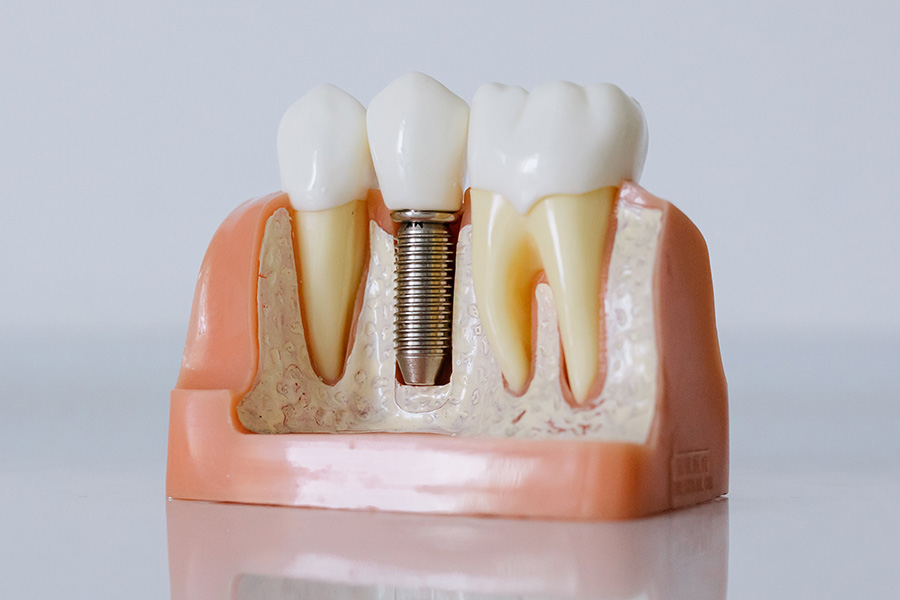Dental implants

Dental implants
A dental implant is titanium post that is surgically placed into the jawbone beneath the gum line. Implants provide a stable foundation for fixed or removable replacement teeth.
Dental implants are commonly used to replace missing teeth, providing a natural-looking and long-lasting solution for patients with missing teeth or tooth loss due to injury, decay, or other oral health issues.

What are the steps for getting a dental implant?
The process of getting dental implants typically involves several steps:
Initial consultation and examination
Dr. Roemermann will evaluate your oral health and determine if you are a candidate for a dental implant. This may include dental X-rays, impressions, and other diagnostic tests.
Surgical placement of the implant
During this procedure, Dr. Roemermann will place the implant into the jawbone beneath the gum tissue. This serves as the artificial tooth root.
Osseointegration
After the implant is placed, the jawbone heals around the implant in a process called osseointegration, which typically takes several months. During this time, the implant becomes securely fused to the jawbone, providing a stable foundation for the replacement tooth.
Placement of the artificial tooth or teeth
Finally, custom-made artificial teeth, such as crowns, bridges, or dentures, are attached to the abutment to restore function and aesthetics by your dentist.
Dr. Roemermann was exceptionally considerate, gentle, and caring. The clinic took the time to coordinate care with my orthodontist, which I truly appreciate!
Victoria K.
What are the benefits of getting an implant?
Aesthetics
Dental implants look and feel like natural teeth. They are custom-made to match the color, size, and shape of your existing teeth, providing a seamless and natural appearance.
Enhanced Comfort
Unlike removable dentures, which can sometimes cause discomfort or irritation, dental implants become a permanent part of your mouth. They eliminate the discomfort associated with loose or ill-fitting dentures.
Better Speech
With traditional dentures, speech can be affected due to slippage or poor fit. Dental implants provide a stable foundation for replacement teeth, allowing for clear and natural speech without concerns about dentures moving around.
Improved Eating Ability
Dental implants function like natural teeth, enabling you to eat your favorite foods without difficulty. Unlike removable dentures, which can make chewing challenging, implants allow for better chewing efficiency and confidence while eating.
Durability and Longevity
With proper care and maintenance, dental implants are designed to be a long-term solution for tooth replacement.
Adjacent Teeth Preservation
Unlike dental bridges, which require the alteration of adjacent healthy teeth for support, dental implants do not rely on neighboring teeth for support. This preserves the integrity of adjacent teeth, reducing the risk of damage or decay.

